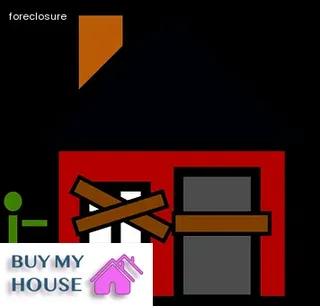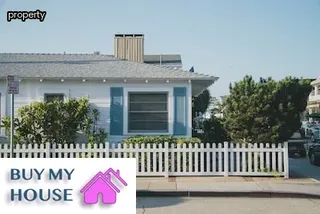A short sale is a real estate transaction in which the seller sells their home for less than the amount of money owed on their mortgage. The lender then agrees to accept the reduced amount instead of the full balance due.
This type of sale can often benefit both the seller and lender, as it allows the seller to avoid foreclosure and financial burden while helping the lender avoid taking a loss on a loan that may have gone into default. Short sales are also advantageous for buyers, as they often offer great deals on homes that would otherwise be difficult to acquire.
It's important to note that short sales do require approval from lenders, so buyers should expect delays in closing times when making an offer on a short sale property.

Short selling a home and buying another comes with many benefits. Homeowners can save money on closing costs, avoid foreclosure, and potentially even make a profit by selling your home for less than what is owed to the lender.
Additionally, short sales can be beneficial for buyers as well. Buyers will likely get more house for their money since short sales are generally priced lower than comparable homes.
Furthermore, short sales may also require fewer repairs since lenders typically won't approve them unless the home is in good condition. Lastly, sellers and buyers in a short sale can benefit from shorter wait times as approval process is often quicker than with traditional real estate transactions.
Short selling your home and buying another is an increasingly popular option for homeowners considering the pros and cons of a short sale versus foreclosure. While both options can help homeowners avoid long-term financial damage, there are key differences to consider when making such an important decision.
Foreclosures may appear as a more attractive option due to their relative speed, but they often come with negative consequences such as decreased credit scores that may make it difficult to purchase a new home. Short sales, while taking longer, may allow homeowners to sell their current property while avoiding the long-term negative impacts associated with foreclosure.
Additionally, short sales may be less expensive than foreclosures since they do not require legal fees or court costs associated with foreclosure proceedings. However, it is important to note that lenders must agree to a short sale before the process can begin and this could take time depending on the lender.
Ultimately, each situation is unique and homeowners should weigh all of their options carefully before making a decision about how best to move forward in selling their current home and purchasing another.

Anyone looking to sell their home and purchase another may consider a short sale. A short sale is when the lender agrees to accept less than what is owed on the mortgage in order to avoid foreclosure.
This can be beneficial for those who owe more than their home is worth or are unable to make payments due to financial hardship. Short selling may also be an option for those who need to move quickly but cannot afford closing costs associated with a traditional sale.
For example, if you need to relocate for a job opportunity or medical care, a short sale could provide the necessary liquidity and speed needed to make it happen. On the other hand, if you have time, money and are not facing financial difficulty then a traditional sale should be considered instead of a short sale.
Short sales typically take longer than a typical home sale, as lenders need to approve the deal before it can be completed. On average, a short sale can take anywhere from two to four months.
The timeline of a short sale is often determined by how quickly the lender responds to inquiries and reviews paperwork associated with the transaction. Homeowners will want to bear in mind that the process may take longer if they are dealing with multiple lenders or their mortgage has been sold to different companies.
Additionally, if the homeowner has any liens on their home, those must also be approved prior to closing the deal. It's important for homeowners to remember that short sales require patience and diligence in order for them to go through smoothly.
Working with an experienced real estate agent who knows how to navigate the complexities of a short sale can help ensure that all parts of the process move along efficiently.

The decision to short sell a home is a difficult one and carries risks, particularly the risk that the sale may fall through. A short sale is when you sell your home for less than what you owe, with the approval of your lender.
When putting in an offer, you must include an approval letter from your lender as proof that they are willing to accept a lower amount. If this approval letter is not included or accepted, then the sale can fall through and leave you with no other option but foreclosure or bankruptcy.
Additionally, if the seller doesn't accept your offer or counter-offers a higher amount than what your lender has pre-approved, then again the sale could fail. Some buyers may also be hesitant to invest in a short sale property due to their lack of knowledge of how it works and uncertainty over whether they will get their money back.
To ensure success, it's important to research all aspects of short sales before entering into any contracts and make sure you have all the necessary paperwork beforehand.
If short selling your home isn't the right choice for you, there are some alternatives to consider. Moving to a cheaper area can help you save money on monthly payments, as can refinancing or taking out a second mortgage.
Consider talking to a financial advisor about a loan modification, which will allow you to adjust the terms of your loan so that it's more manageable. You can also rent out part of your home and use that income to help make payments on what you owe.
Finally, if all else fails, it is possible to declare bankruptcy in order to have your debts discharged and get a fresh start. Each option has its own advantages and disadvantages, so be sure to do plenty of research before making any decisions.

Buying a home through the short sale process can be complicated and overwhelming, but there are a few key tips that can help ensure you make the right decisions. When dealing with short sales, it’s important to understand the timeline and all of the parties involved.
Be sure to do extensive research on current market values in the area and be aware of any potential problems with the property. Additionally, make sure to have a qualified real estate agent who has experience in short sales to help guide you through each step.
It is also essential to have a pre-approval letter from your lender, which will show that you are able to purchase the home and make it easier for both buyer and seller during negotiations. Lastly, don’t forget to include all legal costs associated with buying a home through a short sale into your budget so that you can plan for them accordingly.
With proper preparation and knowledge, buying a home through a short sale process can be successful and rewarding.
When buying a short sale home, it's important to be aware of the common mistakes that can occur. Many buyers don't realize that they need to be pre-approved for a loan before making an offer on a short sale property.
Additionally, many buyers are unaware that it can take up to six months for their offer to be accepted, and the process is more complicated than with a traditional home sale. It's also important not to get too caught up in the details of the negotiations when trying to purchase a short sale property; buyers should focus on getting as good of a deal as possible and remain patient throughout the process.
Finally, potential buyers should make sure they have an experienced real estate agent who knows how to navigate through all the paperwork involved in a short sale transaction.

Short selling your home and buying another can be a great way to move up in the housing market. Despite potential complications, as long as you are aware of the requirements and risks associated with short selling, it is possible to buy another home after your short sell.
To do this, you must have permission from your lender or mortgage servicer, create a budget to ensure that you can afford the new property, and understand all of the details related to the process. You should also take into account any tax implications that may arise from the sale of your current home, such as capital gains taxes.
Additionally, if you’re planning on buying a more expensive home than what you previously owned before short selling, you may need some form of financing in order to make it happen. All of these factors should be taken into consideration when deciding whether or not it’s worth taking on this type of transaction.
If you are considering short selling your home and buying another, it is important to understand the tax implications associated with this process. A short sale occurs when a homeowner sells their home for less than what is owed on the mortgage.
The lender agrees to accept a reduced amount in exchange for releasing the lien against the property. Even though the lender absorbs some of the loss, the homeowner may still have to pay income taxes on any remaining debt forgiven by the lender.
Depending on your individual situation, you may be able to avoid taxes by filing Form 982 and claiming insolvency or showing that all proceeds from the sale were used to purchase a new primary residence. Additionally, if you qualify as a real estate professional under IRS guidelines, you may be able to exclude up to $250,000 of capital gains from taxation through special provisions.
It is always best to consult with a qualified tax professional prior to entering into a short sale agreement so that you can be sure that all of your bases are covered and that you understand the full tax implications of this transaction.

Negotiating with your lender during the short selling process can be intimidating, but it is an important step to take if you are planning to sell your home and buy another. It is important to understand the terms of the agreement you may have with your lender, including any existing penalties or fees that could be applied when you short sell.
Knowing how to negotiate effectively can help you save money and time, and reach a successful outcome. Start by being honest about your financial situation and communicating clearly with your lender.
It is also helpful to research how short sales work in your state, as laws may vary from place to place. Be sure to ask for any guidance or assistance offered by the lender, such as mortgage payment forbearance or loan modification options that could help make the process easier for both parties involved.
Finally, try to stay focused on your goal of a successful sale; remain flexible in negotiations and don't be afraid to compromise if necessary.
Having a good credit score is essential for any home buyer. Short selling your home and buying another can cause a significant impact on your credit score, so it's important to understand what your score looks like before you make the move.
When you short sell a house, the lender may report the transaction to the three major credit bureaus, Experian, Equifax and TransUnion. The lender might also report that the mortgage was settled for less than was owed.
This could hurt your credit score for several years afterward. It is important to keep an eye on your credit report after a short sale in order to monitor how it affects your overall score.
You should also make sure that all of your other accounts remain in good standing and that you pay bills on time in order to help offset some of the negative impact of the short sale. Understanding what to expect from your credit score after a short sale is an important part of making sure you are prepared for any potential consequences of this type of transaction.

When it comes to completing a successful short sale, there are certain documents required in order for the process to go as smoothly as possible. These documents include the purchase agreement or contract between buyer and seller, proof of payment from the lender, and a deed of trust.
Additionally, paperwork related to the loan must be submitted such as a Notice of Default, Promissory Note, Mortgage Billing Statement, and any available loan modification agreements. In some cases, an appraisal may also be needed to determine fair market value of the home.
Lastly, evidence that all liens have been satisfied should be provided in order for the sale to be approved by lenders. Knowing what specific documentation is necessary can help ensure that you do not encounter any issues once you decide to short sell your home and buy another.
Closing costs in a short-sale transaction can vary greatly, depending on the individual situation. In most cases, the buyer will be responsible for covering closing costs related to their loan, while the seller will cover any closing costs related to transferring ownership of the property.
Depending on your lender, you may also be responsible for paying any unpaid taxes or liens that remain outstanding on the home. Additionally, you may have to pay additional fees associated with processing the sale and transferring ownership.
The exact amount of closing costs that must be paid will depend on several factors including your loan terms, local laws, and current market conditions. It is important to understand how these costs are handled before entering into a short-sale transaction so that you can budget accordingly and ensure that all parties involved are in agreement with the terms of the sale.

If your lender refuses to accept the offer you have made on your house in a short sale, it can be an extremely stressful and disheartening situation. It is important to remember that lenders are looking out for their own interests, so they may reject an offer if it does not match up with what they deem to be profitable.
However, this does not mean that all hope is lost. You may still be able to negotiate a better deal or find an alternative solution if you are willing to work hard enough.
To increase your chances of success, try and build a relationship with the lender and provide as much evidence as possible that shows why your offer should be accepted. Additionally, do some research into the legalities of short selling in your area so that you understand exactly what you need to do in order to make it through the process successfully.
When completing a short-sale transaction, it is important to understand the legal implications of deficiency judgments and other associated issues. In a short sale, if you owe more than your property is worth, the lender may seek a deficiency judgment against you.
This means they can pursue legal action against you and could require you to pay the difference between what was owed and what was sold for. There are also lien rights that need to be taken into consideration when selling a home as part of a short sale.
If there are any liens on the property, those need to be paid off or satisfied before proceeding with the sale of the home. Furthermore, taxes will still remain due and payable even after completion of a short-sale transaction.
The seller must ensure that all relevant tax liabilities have been paid in full in order to successfully close the transaction and avoid any potential legal issues down the line.

The process of obtaining approval from your lender to agree to a short-sale agreement can be complicated and time consuming. It is important to be aware of all the strategies necessary when it comes to convincing your lender to accept your proposal.
To begin, you must have a clear understanding of the market value of your current home. You should also consider writing a hardship letter that clearly outlines why you are unable to meet your financial obligations and how a short sale will help you resolve the issue.
Additionally, documentation that proves you are in financial difficulty, such as income tax returns or bank statements, may be required. Additionally, it is recommended that you create an itemized list for the lender which details any costs associated with the negotiation process.
Finally, having professional representation can make all the difference when trying to negotiate with your lender; an experienced real estate agent or attorney can give you valuable advice on how best to approach negotiations and increase the chances of reaching a successful agreement.
When completing a successful short-sale transaction, the mortgage balance will be paid off in full as part of the sale. However, this does not necessarily mean that the homeowner will receive any money from the sale – in most cases, they won't.
Instead, the lender will use proceeds from the sale to pay off the remaining balance on their mortgage. In some cases, homeowners may receive a small amount of money, depending on how much is left after the mortgage is paid off.
It's important to note that even if you do receive some money back from selling your home at a short-sale price, it's usually not enough to buy another home outright. Instead, you'll need to look into financing options or other strategies for purchasing a new home after selling your old one.

Finding professional assistance for the short-sale process can be daunting, but it doesn't have to be. With a little research and planning, you can find the right person or team to help guide you through the intricacies of selling your home as a short sale and buying another.
Start by looking for an experienced real estate agent who has expertise in handling short sales. Ask them to provide references from past clients who have successfully completed the process.
Additionally, consult with a legal professional or financial advisor who understands the complexities of a short sale transaction and can offer advice on navigating the paperwork and legal ramifications involved. Be sure to discuss any potential risks with them before beginning the process so that you are prepared for any surprises along the way.
Yes, you can absolutely sell your house and buy another one at the same time. This process is known as short selling and it can be a great way to get into a new home without having to wait for your current house to sell before buying another.
When short selling, you are essentially selling your current home for less than what you owe on it and agreeing to pay the difference between that amount and what the buyer pays for it. This allows you to free up some extra cash to put towards purchasing a different property right away.
It is important to note, however, that in order to qualify for this type of sale, there are certain criteria that must be met such as being able to prove financial hardship or being behind on your mortgage payments. Additionally, you may have difficulty obtaining financing if your credit score has been affected by the process.
With all of these factors in mind, it’s important to consult with an experienced real estate professional before deciding whether or not short selling is right for you.

Once you have successfully short sold your home and are ready to purchase another, the amount of time it takes to get a conventional loan can vary depending on your individual situation. Typically, lenders will require that a borrower wait four years after the completion of a short sale before they can qualify for a conventional loan.
During this waiting period, borrowers should focus on improving their credit score by making timely payments on any outstanding debts and maintaining good credit habits. This will increase the likelihood of being approved for a conventional loan when the four-year mark has been reached.
Additionally, it is important to note that some lenders may require even longer waiting periods before offering a conventional loan after a short sale, so it is best to check with potential lenders about specific requirements prior to applying for a loan.
Yes, you can use your equity to buy another house when short selling your home. Equity is the difference between what you owe on a loan and what the property is worth.
When you short sell your home, any remaining equity will be released and you can use it for other purposes, like buying another home. You may even qualify for a loan with this equity as down payment or financing.
However, it's important to remember that there are certain conditions in place and some lenders may not accept equity as part of a loan application. Additionally, the amount of equity available may affect the type of loan you can get and the terms associated with it.
If you're interested in using your equity to purchase another home, be sure to talk to a lender about all of your options before making any decisions.
Short selling a home often carries a downside and it is important to be aware of the potential risks before making such a decision. While there are advantages to short selling, including avoiding foreclosure or being able to move quickly, there are also potential drawbacks.
Short sales can have significant impacts on credit scores and may require additional paperwork that can cause delays in the sale process. Additionally, sellers may incur costs associated with closing fees, legal fees, and additional processing fees.
It is important to weigh all of the pros and cons of a short sale before deciding whether it is the right option for you.
A: Yes, if you are able to successfully negotiate a short sale of your current home, you may be eligible to purchase another home using VA, USDA, or Conventional financing.